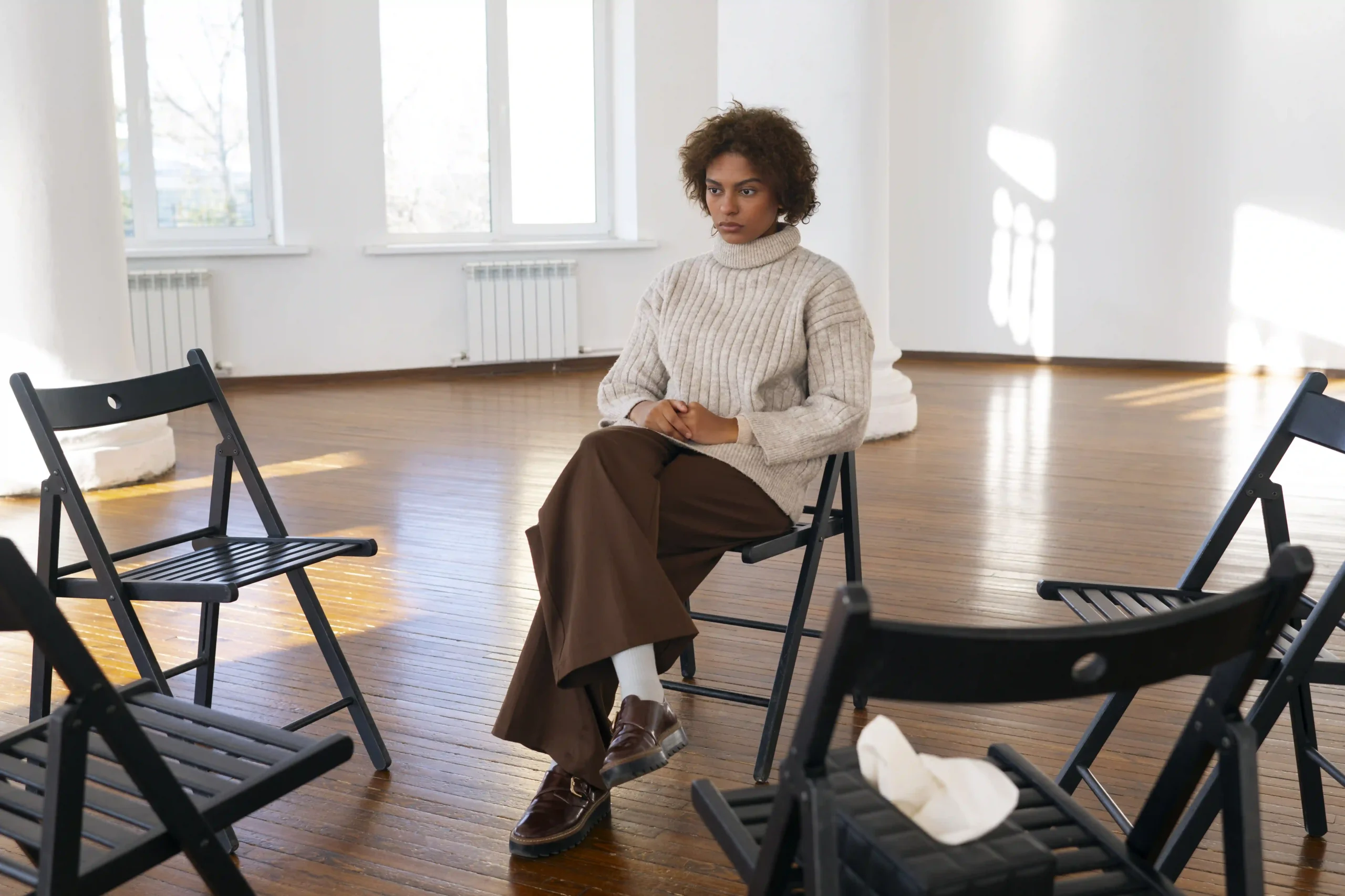Anxiety can feel overwhelming, but there are simple, science-backed strategies you can try right where you are. While professional support is important, learning how to cope with anxiety at home gives you practical tools to reduce stress and regain a sense of calm in daily life.
6 Effective Ways to Cope with Anxiety at Home
- Practice Deep Breathing & Relaxation Techniques
When anxiety peaks, your body often shifts into “fight-or-flight” mode. Deep breathing can help reset your nervous system.
How to try it
Inhale slowly through your nose for 4 seconds, hold for 4 seconds, exhale for 6 seconds. Repeat for 5–10 minutes.
Other techniques
Progressive muscle relaxation, guided meditation, or mindfulness apps.
Why it works
Research shows that controlled breathing lowers heart rate, reduces stress hormones, and helps calm anxious thoughts.
- Create a Grounding Routine
Grounding exercises help you focus on the present moment instead of racing thoughts.
5-4-3-2-1 method
Notice 5 things you can see, 4 you can touch, 3 you can hear, 2 you can smell, 1 you can taste.
Keep a “grounding kit” with soothing items like a stress ball, scented candle, or calming playlist.
Why it works
Grounding disrupts spiraling worry and brings your mind back to safety in the here and now.
- Limit Stimulants & Digital Overload
Too much caffeine, nicotine, or even late-night scrolling can worsen anxiety symptoms.
Swap coffee for herbal tea or water.
Set screen-time limits and give yourself a digital “wind down” before bed.
Why it works: Reducing overstimulation helps regulate mood and improve sleep, which is directly tied to lower anxiety.
- Stay Physically Active
Exercise is one of the most effective natural tools against anxiety.
Even 20–30 minutes of walking, yoga, or dancing at home can release tension. Consistency matters more than intensity. Find something enjoyable.
Why it works
Movement boosts endorphins and reduces cortisol (the stress hormone), making it easier to manage worry and restlessness.
- Reach Out & Express Yourself
Isolation makes anxiety worse. Stay connected with friends, family, or a supportive community — even virtually.
Journaling your thoughts can also help release pent-up worry.
- Sign up for telehealth sessions
If anxiety feels overwhelming, reaching out to a mental health professional like Reverent Health Psychiatry is a powerful step.
Why it works
Talking or writing about anxiety reduces its intensity, while connection helps you feel less alone.
Final Thoughts
Coping with anxiety at home doesn’t mean doing it alone. These small steps, breathing, grounding, healthy lifestyle habits, movement, and connection, can make a meaningful difference in your day-to-day well-being.
If anxiety continues to interfere with your life, consider scheduling a telehealth mental health appointment with a licensed provider. At Reverent Health, compassionate care is only a click away.





